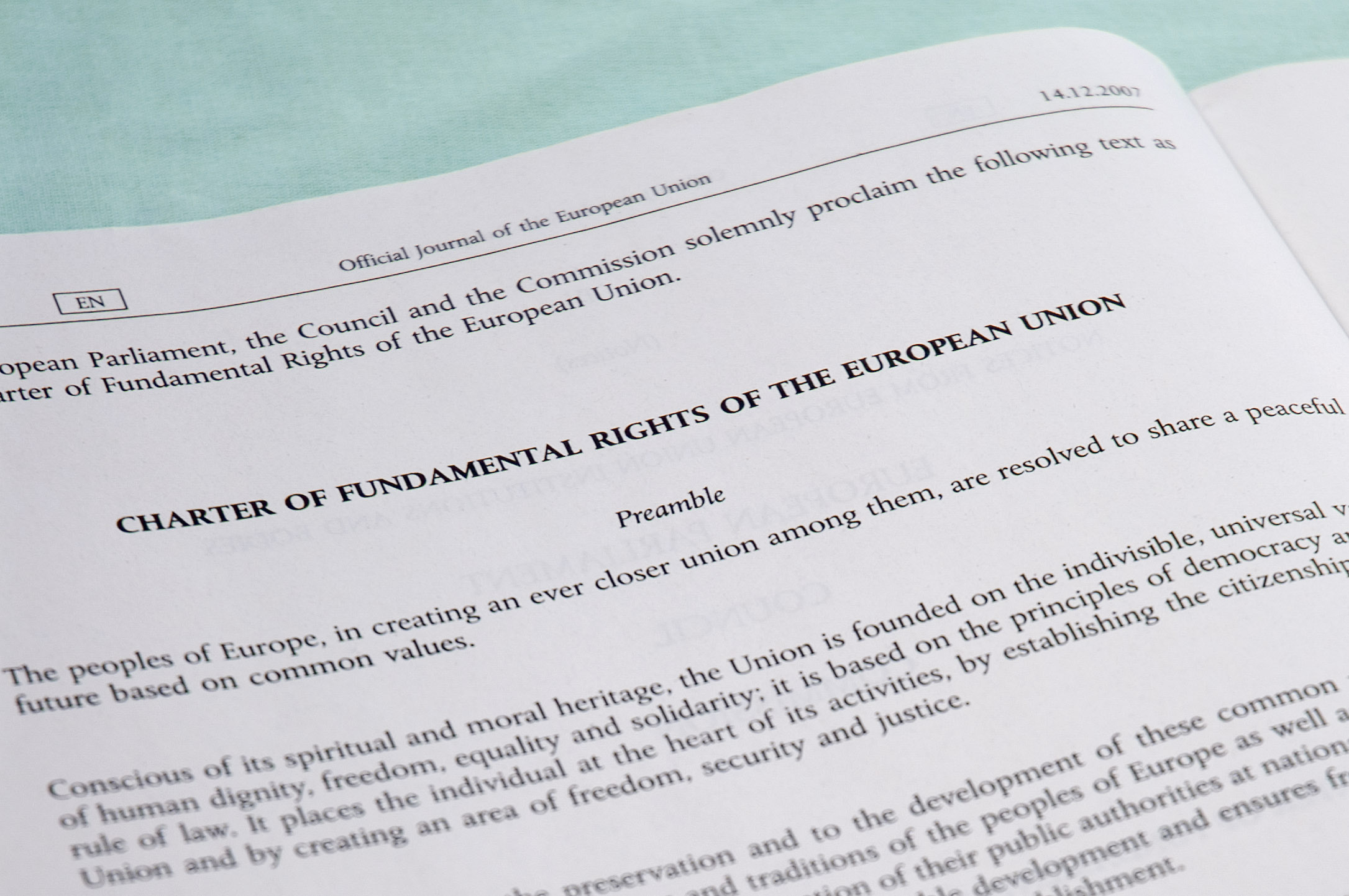
Charter of Fundamental Rights of the European Union
The Charter of Fundamental Rights of the European Union (CFR) enshrines certain political, social, and economic rights for European Union (EU) citizens and residents into EU law. It was drafted by the European Convention and solemnly proclaimed on 7 December 2000 by the European Parliament, the Council of Ministers and the European Commission. However, its then legal status was uncertain and it did not have full legal effect[1] until the entry into force of the Treaty of Lisbon on 1 December 2009.
Not to be confused with European Convention on Human Rights.Charter of Fundamental Rights of the European Union
2 October 2000
7 December 2000
Institutions and member states of the European Union
Consolidate and enshrine the broad array of rights afforded to citizens of the European Union
The Charter forms part of the area of freedom, security and justice (AFSJ) policy domain of the EU. It applies to all the bodies of the European Union and the Euratom which must act and legislate in accordance with its provisions, as the EU's courts will invalidate any EU legislation or ruling assessed as non-compliant with the Charter.
The EU member states are also bound by the Charter when engaged in implementation of the European Union law. However, Poland has been granted a partial opt-out from enforcement of the CFR in spite of participating in the AFSJ; in contrast, Denmark and Ireland have fully adopted the Charter, in spite of having been granted opt-outs from the AFSJ (a general and a partial one, respectively).
The Charter contains some 54 articles divided into seven titles. The first six titles deal with substantive rights under the headings: dignity, freedoms, equality, solidarity, citizens' rights and justice, while the last title deals with the interpretation and application of the Charter. Much of Charter is based on the European Convention on Human Rights (ECHR), European Social Charter, the case-law of the European Court of Justice and pre-existing provisions of European Union law.
Raising the Charter's profile[edit]
The EU has attempted to raise the profile of the Charter so that citizens are more aware of their rights. For example, the EU Fundamental Rights Agency (FRA) has produced apps for iOS[49] and Android[50] with the text of the Charter in all EU languages and related information. It has also published mini-versions of the Charter in all EU languages.
In 2010, the FRA put out a tender for poets to turn the Charter into an 80-minute-long epic poem, with music, dance and multimedia elements. This was also to raise awareness and to simplify the legal text into more understandable language.[51][52] However, Viviane Reding, the European Commissioner for Justice, Freedom & Security, wrote to the director of the FRA slamming the idea on cost and dignity grounds and instructing him to cancel the project.[53]